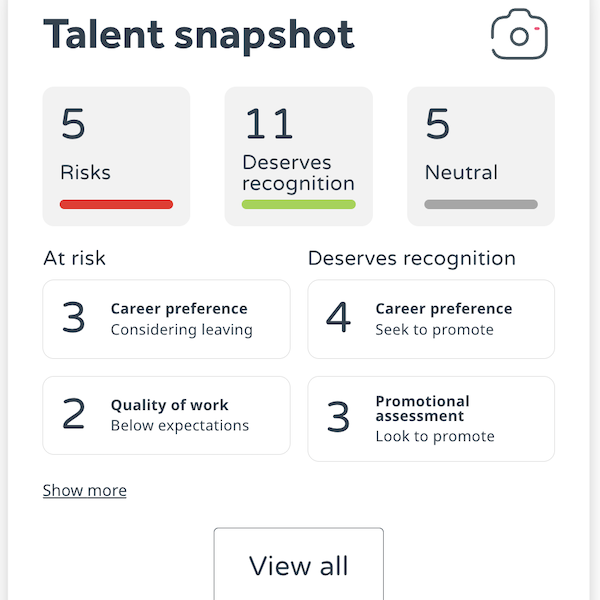Need some employee engagement survey ideas? For any engagement strategy to succeed, you need to know what your people really think. The most effective way of understanding the views, aspirations and frustrations held by your employees is to ask them. But where do you start? What questions should you ask?
When thinking about the questions to ask, the following factors should be considered:
Be free from bias

Keep it simple
The use of language is a major factor in how people approach a survey. If people don’t understand a question, you won’t get accurate results. Keep questions short, words simple and avoid jargon. And use an active rather than passive voice.
What does an active voice mean when writing questions? It can simply be a case of the order of a sentence.
It is better to ask:
How often do you feel that the value of your work is recognised by others? (active voice)
Than:
How often does the recognition of others make you feel that your work is valued? (passive voice)
Keep it brief
More isn’t necessarily better. People have a limited attention span, so when proposing your employee engagement survey ideas keep the number of questions to a reasonable level – in other words, get to the point! Once people lose interest, the quality of their answers tails off. That’s if they bother getting to the end of the survey!
Remember why you are doing the survey
The idea of an employee engagement survey is to find ways to 
So, when writing survey questions, always bear in mind what you want to achieve from the question. Take the example of the question: “How often do you feel that the value of your work is recognised by others?’ If this question has a low score, you can develop a plan to create a culture where people appreciate and celebrate each other’s efforts.
If the question does not prompt an actionable plan, what is the point of asking it?
Taking these considerations into account, how do you compile the right questions? Here’s how we approach survey questions at WeThrive.
Employee engagement survey ideas: our questions
Ensuring we ask the right questions is at the heart of what we do at WeThrive. To achieve this, we realised we needed an in-depth understanding of what makes people happy and productive at work. We set out to understand the causes of stress and anxiety in the workplace and the negative effect stressors have on motivation, engagement and performance.
Utilising core elements of motivational theory, WeThrive Founder and Business Psychologist, Piers Bishop, developed the 4C employee experience model. The model identifies subconscious factors that affect individuals at work. The four Cs stand for Cognitive, Capability, Connection and Confidence.
For each factor, we developed focused employee engagement survey ideas and corresponding questions. In most instances, employees record their answers by means of moving a sliding scale, which ranges from ‘Never’ to ‘Always’.
Let’s take a look at the kind of questions we developed for each of the four Cs
Cognitive
These questions are designed to uncover what your team members are thinking (what do they have in their heads?). What do they think about their performance, their role, their co-workers and the company mission?
Do they know what the business is working towards?
Example questions:
How much of the time do you feel your team are working towards the same goals?
How often are you sure that the whole team is co-operating efficiently?
How often are you completely clear about the performance expected from you at work?
Capability
This set of employee engagement survey ideas and questions assesses if employees believe they have sufficient resources and support at hand. Have they had enough training? Do they believe they have built up the necessary skills to effectively do their job?
Example questions:
- How much of the time do you feel you have all the necessary skills to do your work?
- How often do you feel a sense of competence and achievement at work?
Connection
In this section, the focus is on the subconscious – it’s what we call the invisible ‘human stuff’. Do your team members have a sense of belonging? Do they feel connected with the organisation? Do they think their work is appreciated?
Example questions:
- How often do you feel that the value of your work is recognised by others?
- How much of the time are you able to interact positively with others at work?
Confidence
It is important that people feel safe, secure and comfortable at work. This set of questions looks to highlight any concerns relating to health and stress. They alert leaders to warning signs when an employee needs help or support.
Example questions:
- How much of the time are you able to work free from worry and anxiety?
- How often do you have the necessary headspace to reflect and think clearly?
From the four categories of questions, we can delve deeper. For instance, if the answers reveal that an employee feels a lack of connection, then we can ask how much they agree with statements such as:
- I need more opportunities to discuss and exchange ideas
- I feel isolated from the rest of the team
- I’d like more interaction with my manager
The importance of structure
The 4C methodology demonstrates how we operate with a clear strategy. Every question takes us closer to building a holistic picture of how engaged an employee feels. Each one works towards creating an actionable plan.
If you would like to find out more about the direct benefits of an employee engagement survey, then why not try it for free?
Treat the cause of disengagement instead of the symptoms. With WeThrive you’ll get instant results, feedback, action plans and curated learning content – all based around our expert 4C employee experience model. Sign up now to get started and get 10 users free!


